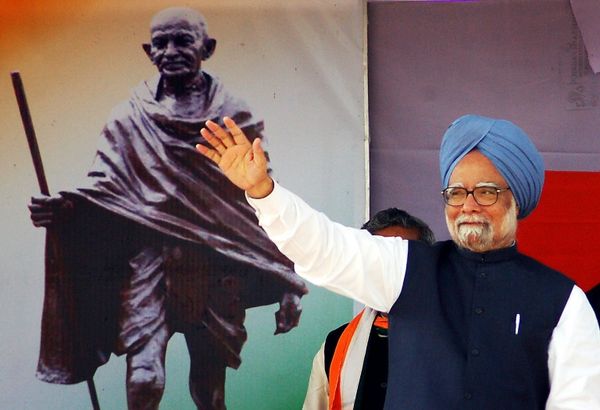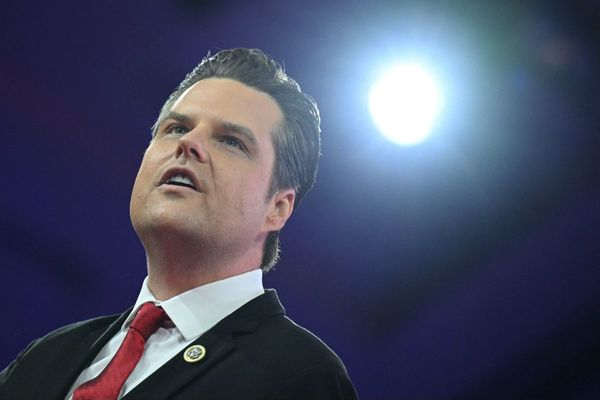
One by one, they went down.
In May, Scott Morrison was on the end of a humiliating defeat that left his party a smoking ruin. But politics wasn’t done with the former prime minister. A book on his brilliant handling of the pandemic by News Corp hagiographers emerged soon afterwards, which revealed that his norm-breaking and relentless mendacity extended to secretly taking on the ministries of his colleagues and not telling them, Parliament or voters. What was intended as a vanity project led to him being censured and his own colleagues demanding he leave politics.
In July, Boris Johnson, another pathological liar, was forced out of office in the UK after yet another scandal under the prime ministership of the former journalist and panel show regular. When his immediate successor, Liz Truss, blew up within weeks, Johnson momentarily believed his Churchillian wilderness was coming to a close until, unusually, reality dawned that his return was simply not feasible without turning UK politics from a laughing stock into a full-blown circus.
And in November, the widely touted “red wave” failed to materialise in the US midterms, with the Democrats turning in the best performance in decades. The GOP managed a tiny majority in the House but went backwards in the Senate. Election deniers, conspiracy theorists, extremists, violence advocates and candidates backed by former president Donald Trump were notable in their failures. Republicans and their media outlets began openly talking about what a loser Trump really is, even as he announced his 2024 candidacy to a bored, trapped audience. Soon he was inviting blatant anti-Semites to dine with him, alienating even ardent supporters.
Trump remains the favourite for the Republican nomination, and the main alternative is a more urbane version of him in Ron DeSantis, who is every bit as autocratic, right-wing and racist as the original version, but far more presentable. But the Republicans’ failure and rebuke of anti-democratic candidates, and the failure of Brazil’s former president Jair Bolsonaro to be reelected, confirmed that 2022 was characterised by the failure of the politics of deception, division and extremism.
Winds of change?
Is this a new era of politics, or just a reversion to the status quo ante? Politics is not kinder and gentler; extremism, calls to violence, conspiracy theorising, racism and misogyny have been rebuked. Institutions that are supposed to protect democracy, like major political parties, parliaments and independent bodies such as election authorities have — despite the best efforts of people like Morrison, Johnson and Trump — worked, albeit imperfectly.
Sometimes they’ve worked because people have had to muster the courage to do their jobs: election workers in the US facing relentless intimidation from right-wingers and Trump supporters, often armed, or Liz Cheney, who has made it her mission to rid her party of Trump and ended up losing her seat despite her Republican royalty credentials.
There are elements of a new era. Here, community independents, the product of genuine grassroots political engagement, took a swathe of heartland seats from the Liberals. If the circumstances of the rise of the teals were mostly related to the disaffection bred by Morrison’s rotten tenure as prime minister, his departure doesn’t guarantee such seats will return to the Liberals — certainly not while the federal Coalition remains wedded to climate denialism, hostility to integrity and accountability, culture wars and punching downwards.
In the Albanese government we have a much more interventionist regime prepared to use the levers of power to deliver its agenda: reversing the atomisation of the workforce; ending the decades-long starving of aged care funding; improving access to childcare; adopting a functional energy policy intended to accelerate decarbonisation.
In the US, the Inflation Reduction Act and the CHIPS and Science Act similarly mark a significant ramping up of interventionism by the federal government. These are massive initiatives fusing climate policy, industry policy and foreign policy, aimed at ensuring US control of high-tech supply chains and crippling China’s high-tech sector while accelerating investment in renewables.
It’s confirmation that the direction, at least for now, of global trade is negative — the West wants to onshore, take back control of supply chains, undermine China and lock Russia into permanent economic decline until it abandons its imperialist aggression.
Will neoliberalism never die?
When the UK’s Liz Truss and Kwasi Kwarteng’s embrace of neoliberal myths about trickledown economics and growth via tax cuts dissolved into disaster — with financial markets the first to stampede for the exits — it seemed neoliberalism, crippled by the pandemic, was on its deathbed.
But the forces that enabled neoliberalism, in its late-style form — extensive state capture of governments by corporate interests, a media dedicated to serving vested interests, and oligopolistic markets that stifle innovation, investment and growth — remain embedded.
Fossil fuel companies and their union handmaidens continue to veto the phase-out of coal and gas exports here; the gambling industry continues to enable widespread crime with relative impunity; no amount of cost blowouts and delays can apparently prevent ever more money being poured into the pockets of defence contractors. And the mechanisms of state capture at the federal level — poor donation disclosure laws, little or no lobbying regulation, a near-total lack of transparency of the activities of ministers — are still intact under the new government.
That’s related to the persistence of the forces that enabled politicians like Trump, Johnson and Morrison. They were helped by the alienation of voters from political systems deemed to serve vested interests rather than the public interest (ironic because all three primarily served vested interests when in power) and an economic system that delivered income stagnation at best and ever-growing corporate power at the expense of working households.
All three were undone by the pandemic, which required genuine government leadership, of which none of them was capable, and voter demands for a level of government activity that was beyond their understanding and the political campaign strategies they deployed.
That the parliamentary year in Australia ended with the Albanese government pushing through a raft of key legislation — the NACC, industrial relations reform, restoring territory rights — was entirely apt.
Under Morrison, Parliament had often sat virtually idle due to a dearth of any meaningful agenda; under Albanese, the place is busy with reform. Politics no longer feels like a poorly written farce; instead it feels normal, like adults are in charge, a feeling experienced only once in recent years, under Malcolm Turnbull, and all too briefly even then.
But as central banks continue to punish low-income earners around the world for the actions of Russian President Vladimir Putin, energy companies and powerful corporate oligopolies push inflation up in the quest for profits, and the possibility of recession looms large in major economies, the forces that delivered alienation and disaffection from politics could return with a rush, along with their toxic consequences.
Whether 2022 marks an end or just a pause remains to be seen.







